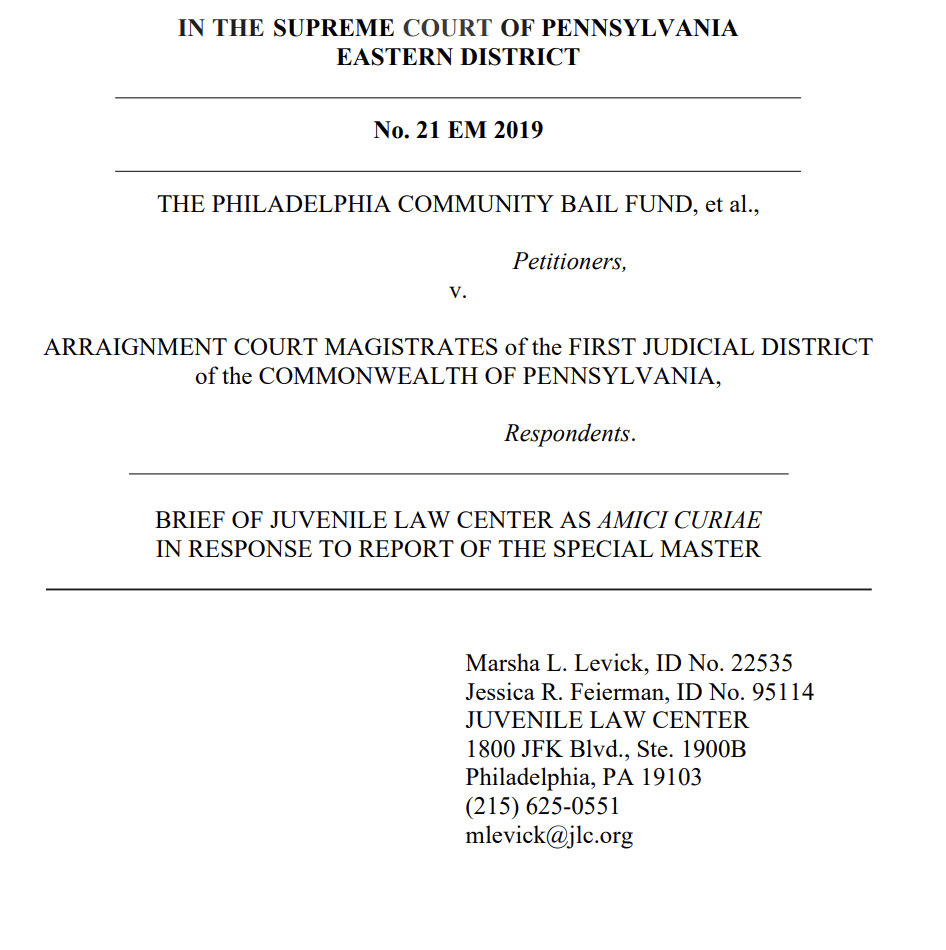
Summary of Argument
On December 17, 2019, the Special Master submitted his Report and Proposed Interim Pretrial Reform plan (the “Plan”) to this Court recommending a series of improvements to the First Judicial District’s cash bail system. These recommended improvements were the result of negotiated agreements between and among the parties to this litigation as well as the President Judge of the First Judicial District, the President Judge of the Municipal Court, the Philadelphia District Attorney, and the Defender Association of Philadelphia. Notably absent from the recommendations, however, is any recognition or consideration of the serious challenges, risks, and needs faced by youth in the criminal justice system and, in particular, in bail proceedings. Amici therefore write separately to outline the grave harm faced by youth and to propose an alternative that considers what the U.S. Supreme Court has long recognized, that youth must be provided with distinctive procedural protections.
First, among the recommended improvements on which the parties reached agreement is the enforcement of the legal and constitutional requirement that any decision to impose monetary conditions on pretrial release must consider a defendant’s ability to pay. Youth as a class, however, do not have the financial resources to pay for bail. They have limited earning capacity and—until age 18— are required to attend school. 24 P.S. § 13-1327, 13-1326. Second, the deprivation of liberty caused by pretrial detention imposes unique harms on youth, who are at a heightened risk of pleading guilty to avoid the documented, greater likelihood of violence and injury in adult jail. Given these particular vulnerabilities, Amici recommend this Court adopt a presumption of indigence standard for youth in adult bail proceedings. While the Report and Plan provide enhanced protections that will also benefit youth, such as greater access to counsel which Amici also support, additional protections are necessary to ensure that all bailable youth’s constitutional right to pretrial liberty is protected.